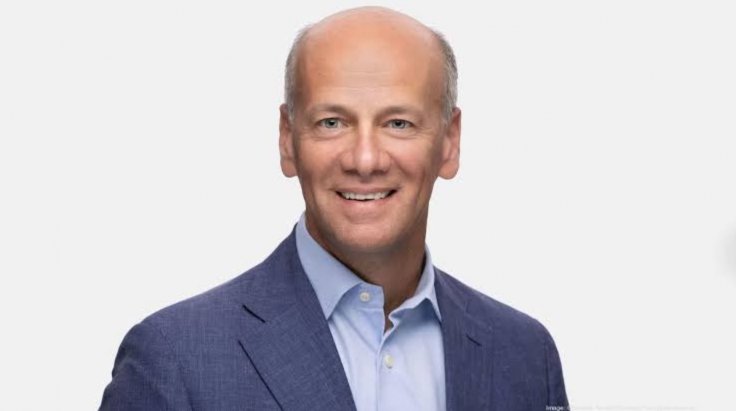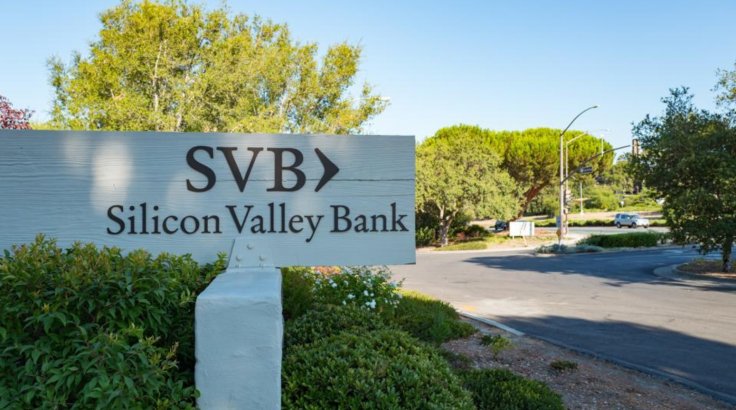The CEO of Silicon Valley Bank Greg Becker sold a staggering $3.57 million of company stock under an automated selloff trading plan less than two weeks after the bank disclosed extensive losses leading to its collapse. It has also been revealed that SVB's CFO offloaded $575,000 the same day.
On February 27, Greg Becker sold 12,451 shares at an average cost of $287.42. This was the first time in more than a year that Becker sold shares in parent company SVB Financial Group, according to regulatory filings. The bank's stock plummeted to barely $39.49 in premarket trading before the Federal Deposit Insurance Corporation (FDIC) seized the bank's assets on Friday.
Smartly Saved His Money

Becker sold his stocks in a pre-planned, automated sell-off just two weeks before the bank's collapse. Becker purchased the same number of shares on the day his sale was completed using stock options that cost $105.18 each, according to documents filed with the Securities and Exchange Commission.
The options, which expire on May 2, allow you to buy shares of a corporation at a certain price. He used a trading strategy that he had set up on January 26 to carry out the trades through a trust that he manages, according to the papers.

On the same day as his boss, SVB's CFO Daniel Beck sold 2,000 shares for $287.59 each. He put up his trading strategy on January 24.
Company insiders frequently employ such strategies to execute trades when particular circumstances, such as price and volume, are met. This helps to eliminate the chance that they could exploit their information to outperform the market.
Corporate trading strategies like the one Becker employed are legal. The Securities and Exchange Commission established the plans in 2000 to prevent the potential of insider trading. The intention is to prevent misconduct by restricting sales to specific days on which an executive may sell shares.

The timing may have easily been coincidental.
However, detractors claim that the prepared share-sale plans, also known as 10b5-1 plans, have important flaws, including the absence of required cooling-off periods.
On December 1, 2021, Becker sold his last share of stock before his most recent plan was carried out. In the sale, there were 12,500 shares for $8.7 million, or an average price of $698.69 per share.
He bought 12,500 shares on the same day he exercised his stock options, and the sales were made possible by a trading plan that had been set up on October 26, 2021.
Finance Sector Rattled
Silicon Valley Bank collapsed on Friday after a week of turmoil caused by a letter the company wrote to shareholders stating that it would try to raise more than $2 billion in capital after taking losses.

Even as Becker implored clients to maintain their composure, the statement caused the company's shares to plummet.
Following that, FDIC acted swiftly to confiscate the assets of SVB on Friday after it experienced a run on the bank in the largest failure of a financial institution since Washington Mutual during the Great Recession of 2008
SVB, a little-known US bank that specialized in funding startups, had grown to be the 16th largest bank in terms of assets by the end of 2022 with $209 billion in assets and over $175.4 billion in deposits.
Its collapse marks the second-largest retail bank failure in American history and the biggest bank failure since Washington Mutual in 2008, respectively.

Treasury Secretary Janet Yellen called an urgent meeting of the top US financial regulators in response to the abrupt fall. "Secretary Yellen expressed full confidence in banking regulators to take appropriate actions in response and noted that the banking system remains resilient and regulators have effective tools to address this type of event," a Treasury statement said.
The struggles of SVB, a bank based in the shadow of one of the largest IT corporations in the world, have sparked worries that other banks may follow suit as weaker lenders are squeezed by the effects of high inflation and rising interest rates.
In front of the SVB offices, on a rainy day in Santa Clara, California, anxious clients spoke in tight groups, speculating about how they could get their money out as word of the government seizure spread.








